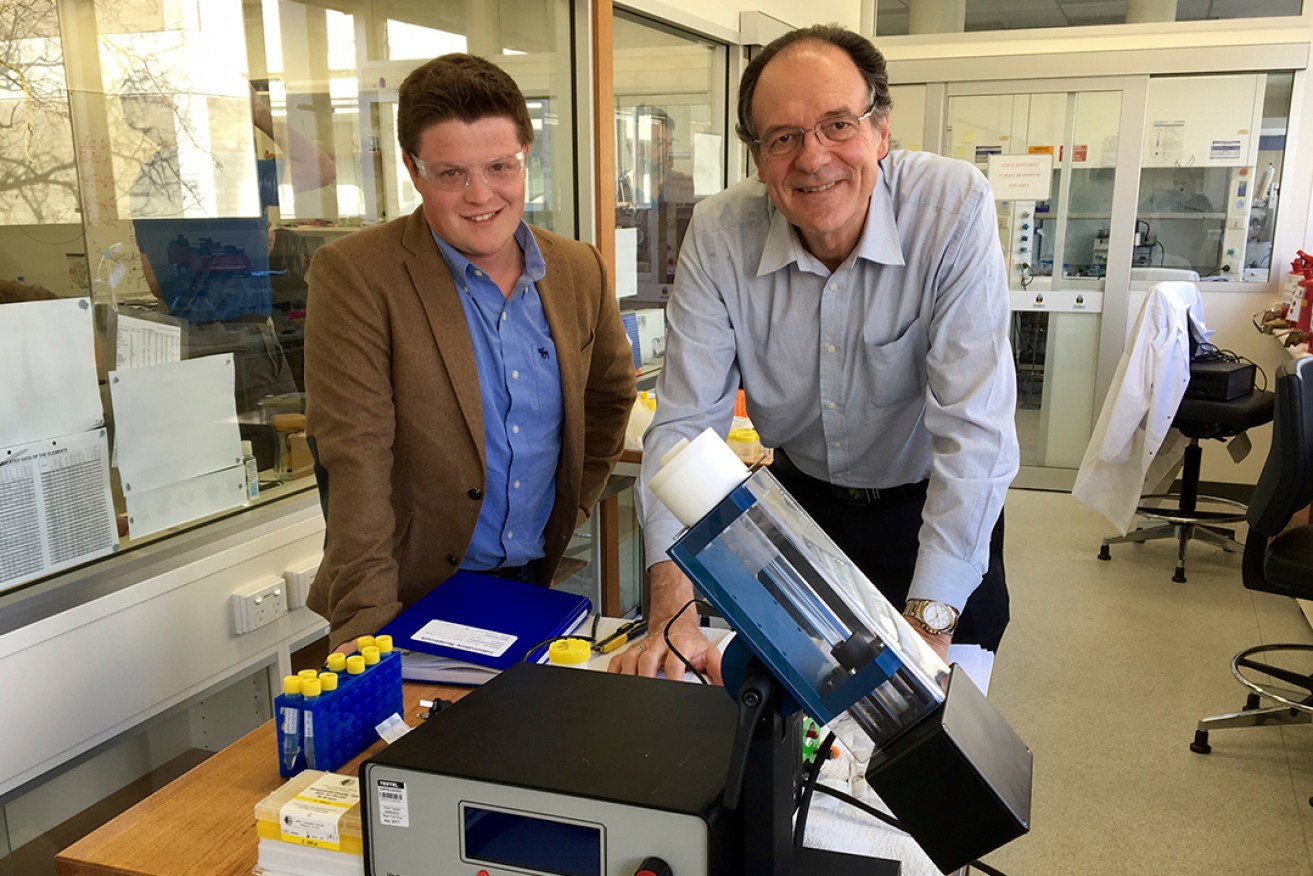
Catalyst for cleaner, faster chemicals
Enzymes, described as the ‘engine rooms’ of the natural world, can now work up to 16 times faster thanks to ‘paradigm shifting’ technology developed between Flinders and University of California Irvine.

Professor Colin Raston and PhD researcher Joshua Britton with a Vortex Fluidic Device at Flinders University.
The latest breakthrough adds to a suite of clean technology being developed by Flinders University with its novel Vortex Fluidic Device, which enables new chemical processing capability for a range of research and industry – from pharmaceuticals to biodiesel.
The latest enzyme processing VFD technique was developed via a successful collaboration between South Australia Premier’s Professorial Research Fellow in Clean Technology Colin Raston at Flinders University and Professor Gregory Weiss at UCI, USA.
In the latest research, the VFD pressure waves were used to accelerate how quickly enzymes combine atoms (catalyse) to make molecules essential for the manufacturing of products ranging from medicines to biodiesel.
“Significantly, the process requires only the enzymes, water and a VFD, making it one of the most environmentally-friendly chemical processes known,” says PhD researcher Joshua Britton, who led the study with UCI researcher Luz Meneghini.
The result greatly accelerated bio-catalysis by Deoxyribose-5-phospate (DERA), Esterase, Glucosidase and Alkaline phosphatase.
“Enzymes make life possible by catalysing diverse and challenging chemical transformations with exquisite precision – and no nasty by-products,” says Mr Britton, who is moving to the Massachusetts Institute of Technology in the US to continue his work.
“Their use has been limited in some areas, however, because of modest reaction rates, requiring long reaction times and careful optimised conditions. DERA, for example, which previously required hours to days, now catalyses 15 times faster using the VFD.”
Professor Raston, who previously used the VFD with Professor Weiss to ‘unboil’ the proteins in a cooked egg, has also used the technology to make a globally significant anaesthetic and to synthesise a common drug for treating ovarian cancer.
He says acceleration of bio-catalysis in enzymes marked a “paradigm shift”, providing yet another avenue of new tools and synthesis strategies for a range of uses and product developments.
Mr Britton says the research is a potential “game-changer,” particularly in the future when finite resources become even more expensive and scarce.
“This will help us to increase production of chemical molecules for use in important commodities such as fuel and medicine at increased rates and in a much more sustainable way,” he says.
The latest paper, Accelerating Enzymatic Catalysis Using Vortex Fluidics, has been published online here.
More information about the VFD ‘unboil and egg’ discovery can be seen in the recent edition of ABC TV science program Catalyst here.




